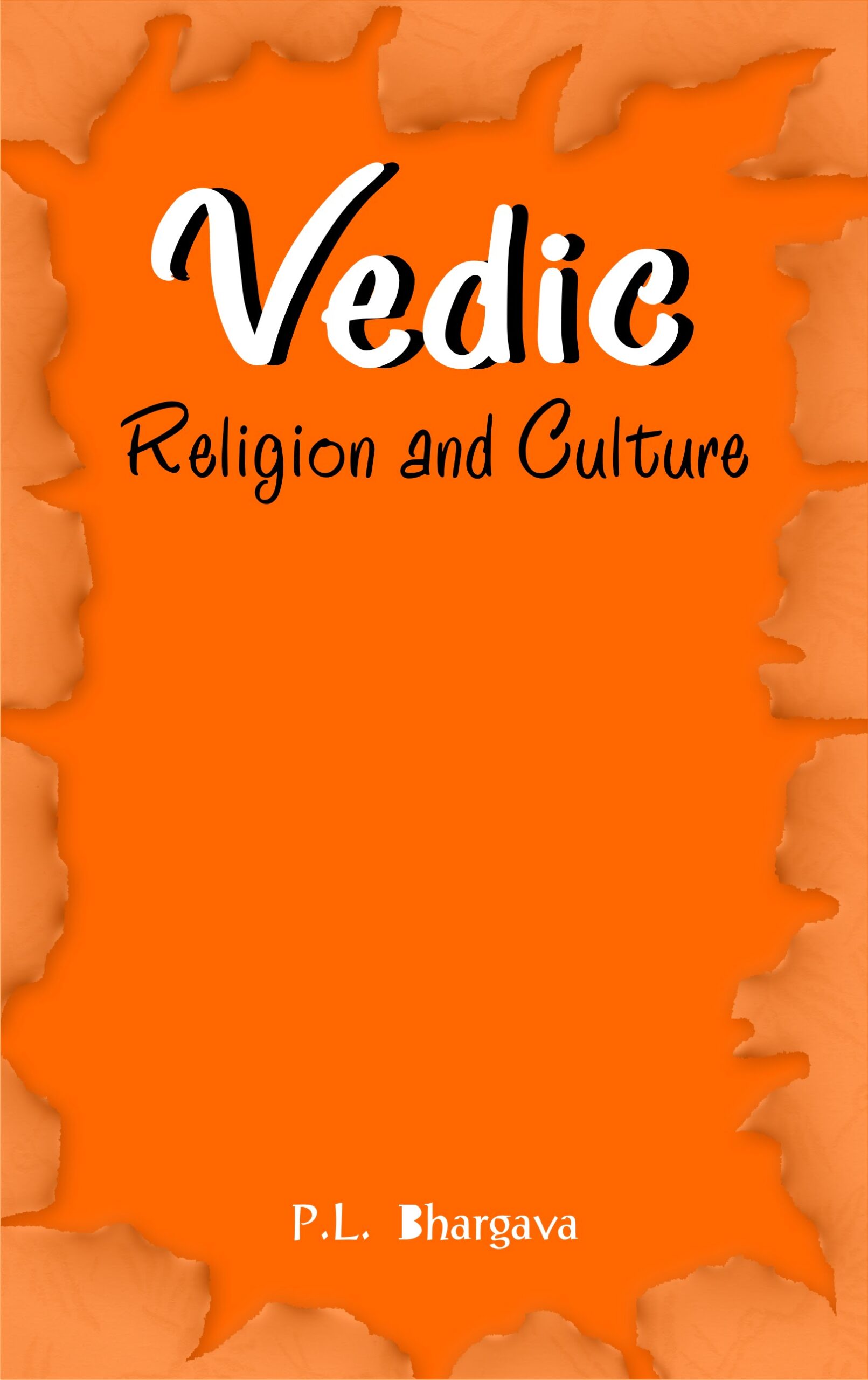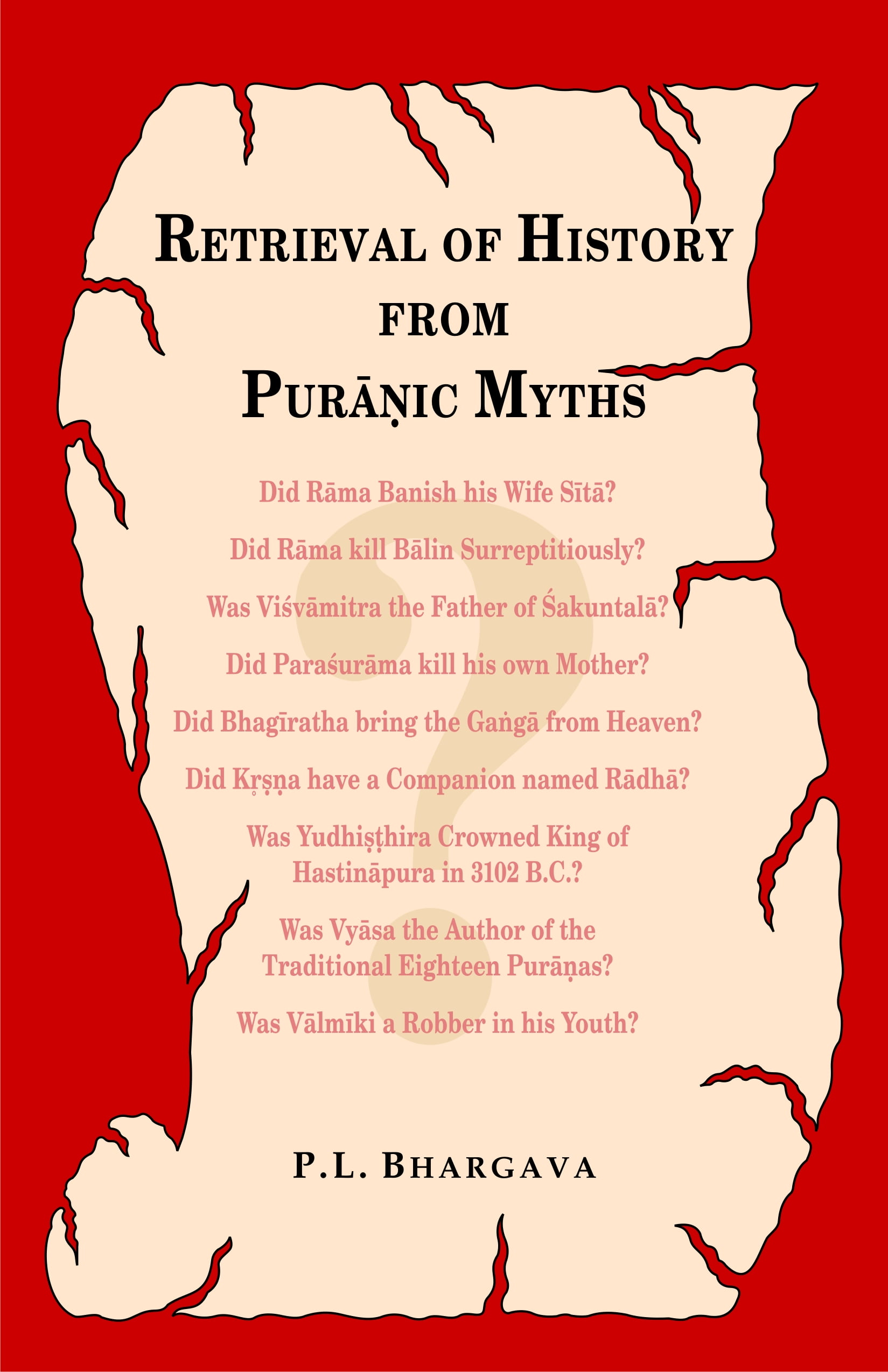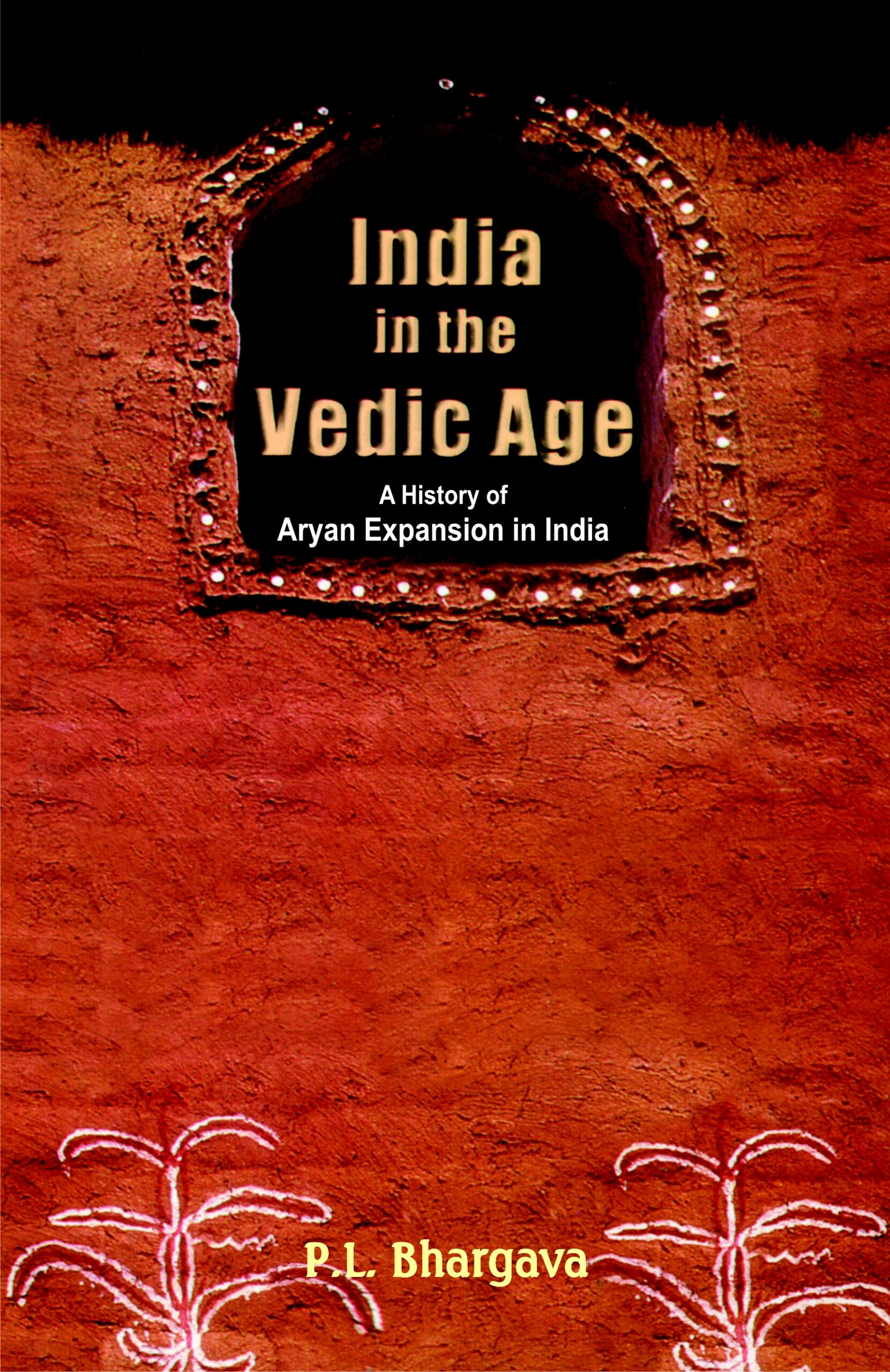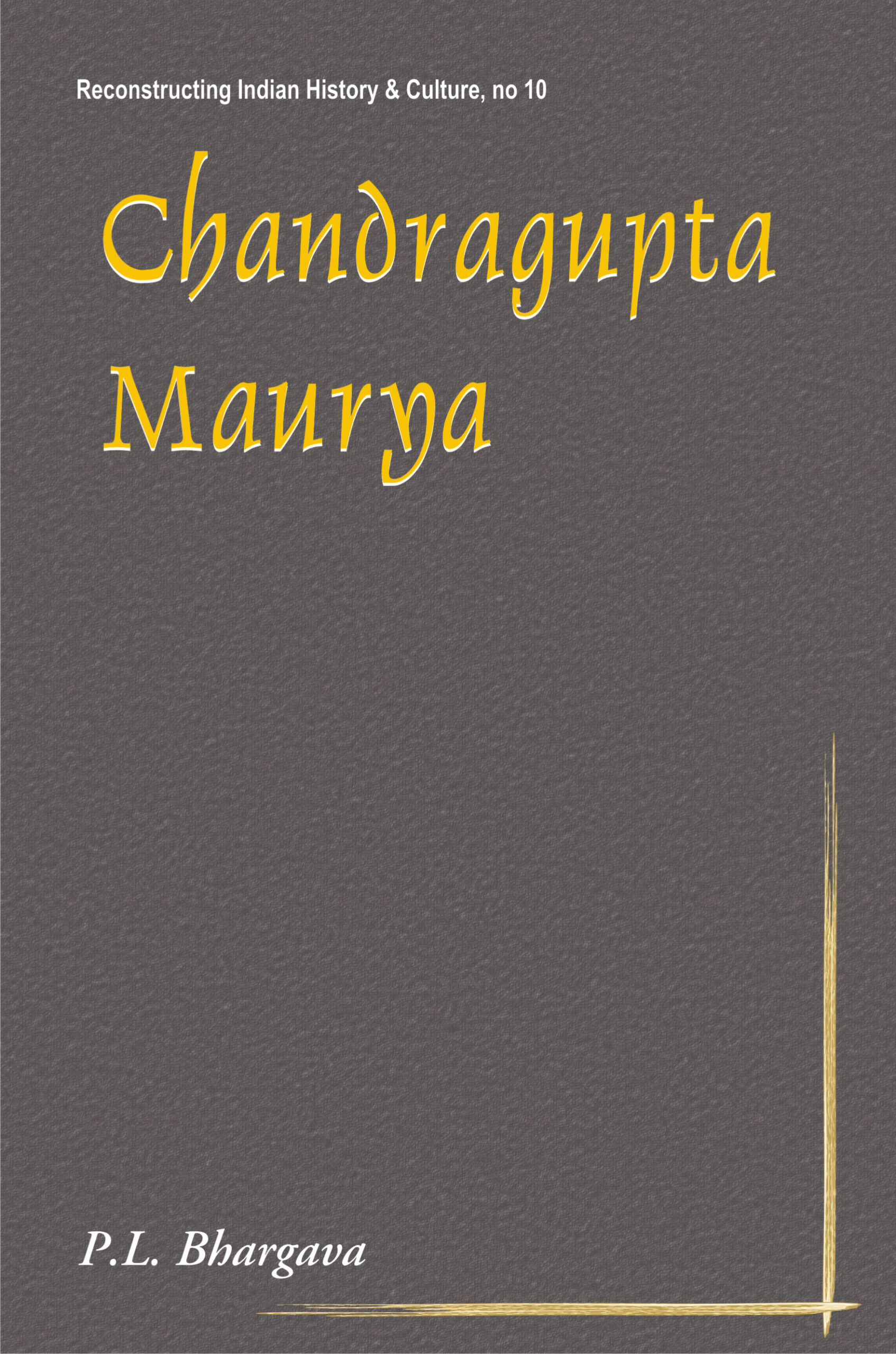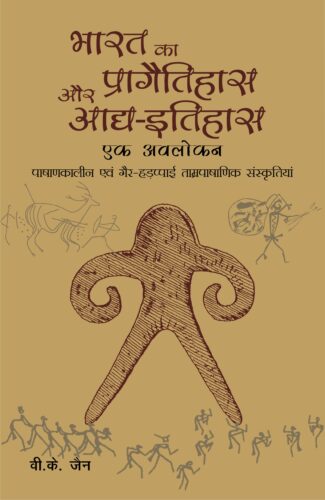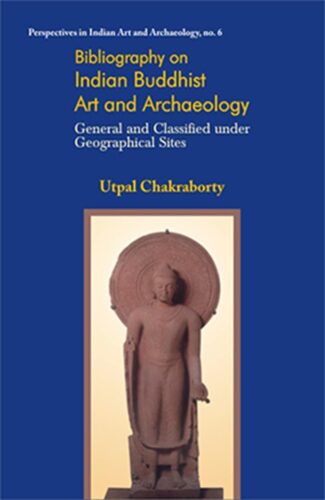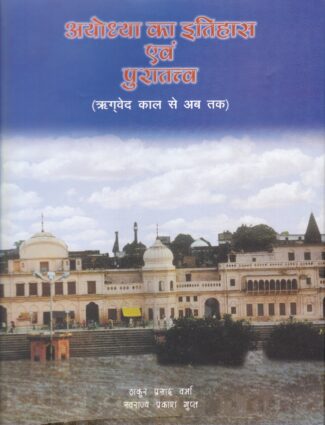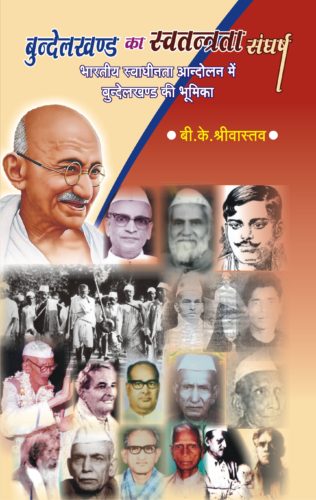-


India in the Vedic A...
India in the Vedic Age
A History of Aryan Expansion in India by: P.L BhargavaDr. Bhargavas book opens a fascinating panorama of life in Vedic India, highlighting in particular, its powerful dynastic families, its rsis, society, economic conditions, political set-up, religion, philosophy and literature. The book includes a vivid description of the Aryan homeland, its geography, flora and fauna and a lot else.
₹1,440.00
ISBN: 9788124601716
Year Of Publication: 2011
Edition: 1st
Pages : xiv, 462
Bibliographic Details : One folded map; Bibliography; Index
Language : English
Binding : Hardcover
Publisher: D.K. Printworld Pvt. Ltd.
Size: 23 cm.
Weight: 700
Vedas arent just the scriptural texts, but the earliest record of Indo, Aryan civilisation. On the basis of this corpus of mankinds oldest literature, together with his indepth analyses of the later-day Puranic writings, Professor Bhargava offers the first ever systematic, well-knit study of the Aryan expansion on the Indian subcontinent since c. 3100 bc. Retrieving, thus, hard historical facts from the complex Sanskrit verses of ancient seers, Dr. Bhargavas book opens a fascinating panorama of life in Vedic Indiahighlighting, in particular, its powerful dynastic families, its rishis, society, economic conditions, political setup; religion, philosophy and literature. The book also includes a vivid description of the Aryan homeland, its geography, flora, fauna, and a lot else. Now in its third enlarged, fully revrsed and updated edition; India in the Vedic Age has, ever since its first appearance in 1956, been acclaimed not only by prestigious journals or discerning readers, but also by many IndologistsISanskrit historians of worldwide eminence, including notably, A.L. Basham, K.D. Vajpeyi, Ludwik Stembach, T.G. Mainkar, and G.V. Devas. While A.S. Altekar acknowledged it as a distinct advance over Pargiters work, Dr. Bhargavas book is certainly, as U.N. Ghoshal observed, the most original work of our time.
Preface to the Third Edition
Preface to the Second Edition
Preface to the First Edition
Abbreviations
Transliteration System
1. Introduction
2. Examination of Sources
3. General Survey of Aryan Expansion
4. Geography, Fauna, and Flora of the Vedic Homeland
The Rivers
The Ganga — The Yamuna — The Sarasvati — The Shutudri — The Parushni — The Asikni — The Marudvridha — The Vitasta — The Arjikiya — The Sushoma — The Sindhu — The Trishtama — The Susartu and the Rasa — The Kubha and the Shveti — The Krumu and the Mehatnu — The Gomati — The Drishadvati and the Apaya — The Raka and the Brihaddiva — The Vipash — The Gauri — The Suvastu — The Anitabha — The Sarayu
The Seas
The Mountains
The Himalayas — The Sharyanavat Mountains — The Shushoma Mountains — The Arjika Mountains — The Mujavat Mountains
The Forests
The Desert Tract
The Regions
The Towns
Fauna and Flora
5. The Puranic Genealogies
The Saudyumanas
The Yadavas — The Turvasus — The Druhyus — The Anavas — The Pauravas — The Jahnavas — The Kashyas — The Tritsus — The Panchala Dynasties — The Barhadrathas
The Aikshvakus
The Videha Dynasty — The Vaishalas
The Pramshavas
Sharyati
6. Agreement of Vedic and Puranic Traditions
7. Evidence of Synchronisms
8. Eras of the Vedic Age
9. The Families of Vedic Rishis
The Bhargavas
The Angirasas
The Atreyas
The Kashyapas
The Vasishthas
The Agastyas
The Kaushikas
Families that Became Extinct
Kings, Commoners, and Ladies who were Rishis of Vedic Hymns
10. Chronology of the Vedic Age
11. History of the Vedic Age
12. Social and Economic Conditions
The Caste System
Family Life
Marriage and the Position of Women
Education
Dress and Decoration
Food and Drink
Amusements and Entertainments
Occupations and Industries
Trade and Means of Transport
House Building
13. Political and Legal Institutions
14. Religion and Philosophy
The Celestial Gods
Dyaus — Ashvins — Pushan — Vishnu — The Adityas — Surya — Savitri — Mitra — Aryaman — Daksha
The Atmospheric Gods
Indra — Varuna — Rudra — The Maruts — Ushas — Vayu — Parjanya — Vivasvat — Yama — Prajapati — Aditi
Terrestrial Gods
Agni — Soma — Prithivi — Apah — Apam Napat — Brihaspati — Matarishvan — Tvashtri — Sarasvati — Ida — Bharati
Deified Men and Semi-Divine Beings
Manu — Trita Aptya — Ribhus — The Gandharvas and the Apsarases
Vedic Ritual
Popular Beliefs
Eschatology
Philosophy
Morality
15. Language and Literature
Language
Literature
Bibliography
Index

